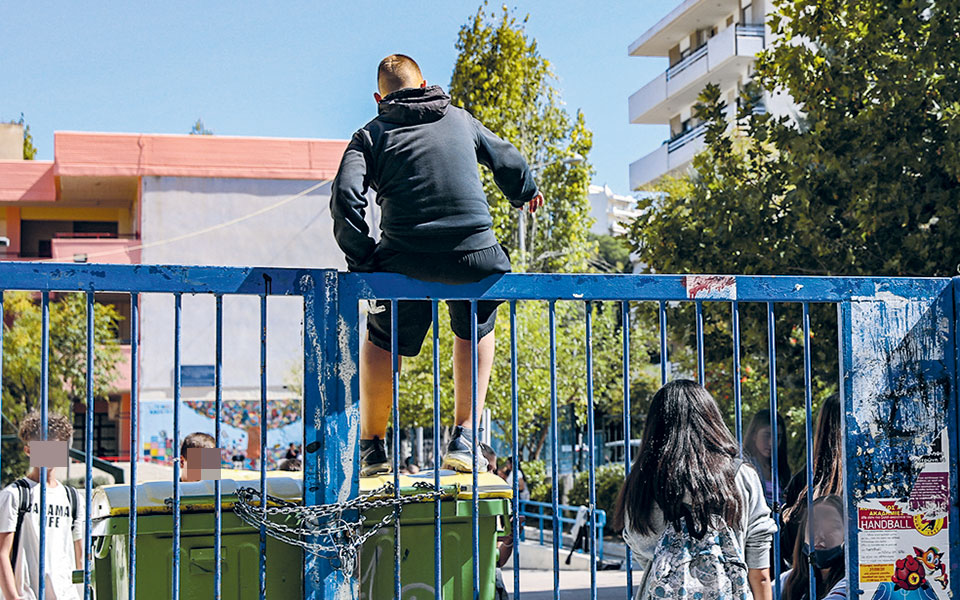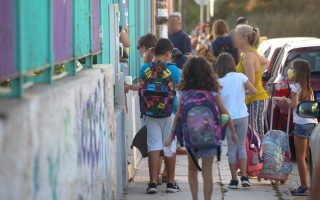The immunity of sit-ins

Very little has changed in Greek school sit-ins, an annual ritual, save that today they are being staged against the backdrop of the coronavirus pandemic. This change is also reflected in the demands of the protesting pupils: Some of the requests put forward to the Education Ministry this year were: responsible information by the state and the National Organization for Public Health (EODY) on vaccination; free and regular rapid tests – not just self-tests – at schools for all pupils without discrimination; small classes, making use of more appropriate classrooms.
It’s hard not to be surprised by the protesters’ demands. It’s as if the daily reports on the spread of the pandemic and the conditions it imposes upon the economy, society and the education system are not part of our daily reality. On the other hand, sit-ins have always been somewhat divorced from reality.
More than an estimated 130 sit-ins are currently taking place at schools across the country this year.
The problem is not boredom and, as a result, the indifference borne by the recurring ritual. Nor is it the, often misspelled, slogans employed by the pupils and which inevitably become the subject of commentary. Nor is it even the loss of class hours. Last year in fact, Education Minister Niki Kerameus said that in schools affected by sit-ins, classes would be held on school holidays, Saturdays and instead of field trips to compensate for lost time. In the end, plans were upended by the pandemic and remote learning.
None of these problems is indeed fundamental as far as Greece’s education system is concerned. The same goes for the unbearably predictable casting which is repeated annually, with the same actors – pupils, teachers, parents, Education Ministry officials – delivering the same lines.
What really is becoming clearer by the year is the lack of desire for knowledge, the disconnection from discipline which is necessary to complete the education process. Remote classes may have intensified pupils’ alienation from school. But the trend was already there.
Sit-ins accentuate inequality and social divisions between private and public education; the latter is losing ground although it is a key foundation for the country’s future.
Dismantling the school routine is not cost-free. The predictable repeat does not make sit-ins dull and insignificant. They risk being the only manifestation of “normality” in a school year which looms turbulent and disconcerting already.





